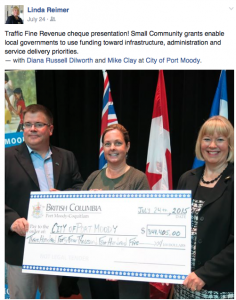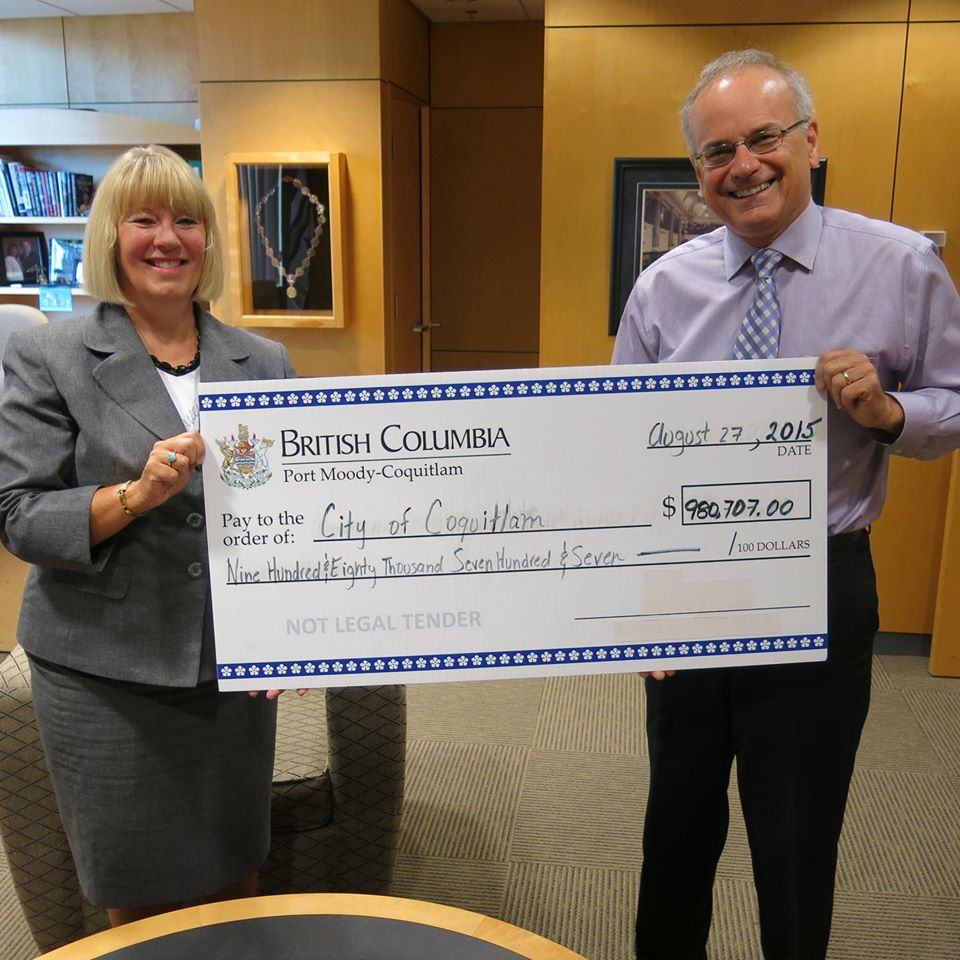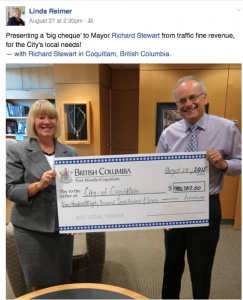A slightly shorter version of this article was published by The Vancouver Sun on Tuesday September 15th, 2015. The BC Government gives 100 per cent of ticket fine revenues to municipalities who want control over speed limits and who often influence how those limits are enforced. In turn, they turn the money over to police and other community groups. Police can become the beneficiaries of their choices for enforcement. It’s wrong.
Today, BC road users – who simply desire safe and efficient travel – increasingly find themselves at odds with their political masters. Governments and law enforcement, the proverbial trolls under the bridge, see opportunities to raise revenue while putting on a big show about improving safety. In the US, it’s well established that some towns extract significant portions of their budgets from hapless motorists passing through. In June, recently retired Calvert, Texas Judge David Viscarde reported he was pressured by the city to push more speeding tickets through court and said “their municipal court is their cash cow.” State records show that Calvert, a town of approximately 1,100 residents, in an area known as the “Texas Triangle” for its reputation of writing a disproportionate number of traffic tickets, has nearly five municipal court cases pending for every resident. Towns like Calvert have gained the dubious distinction of issuing traffic tickets for traffic violations to otherwise safe and law abiding citizens.
Many people would be surprised to know how our province shares traffic ticket fine revenues and the degree to which municipalities in BC see them as their own cash cow. Thus we could have our very own “Texas Triangle” in BC. Since 2004, 100 per cent of traffic fines are returned to municipalities to assist with policing costs, and they want more if they can get it.
The Union of BC Municipalities (UBCM) meets again in Vancouver this month, and among its list of resolutions being considered, is a mechanism “to allow for the lowering of the speed limit on certain highways that pass through rural communities and neighborhoods”. This is the third attempt since 2007, to meddle with roadway speed limits. This is a bad idea for many reasons, but the most important is that politicians are not qualified to make engineering decisions. Victoria council recently rejected professional engineering advice, ordering signs for 40 km/h speed limits (the speed of an elite runner) to send a social message to Victoria motorists. These are not school zones or narrow streets, but roads that have safely served road users for decades at previously appropriate limits.
G iving these councils more control on sections of provincial highways will result in a downward creep of speed limits frustrating the safe and efficient movement of people and goods. The fact that municipalities in BC see a 100% return of all traffic revenues, places them in a direct conflict of interest in matters relating to both traffic law and enforcement in BC, and by specifying they want to lower the speed limits (frequently against best engineering practices), the sponsors of this resolution have brought that conflict to the forefront, and made it clear as to their motivation.
iving these councils more control on sections of provincial highways will result in a downward creep of speed limits frustrating the safe and efficient movement of people and goods. The fact that municipalities in BC see a 100% return of all traffic revenues, places them in a direct conflict of interest in matters relating to both traffic law and enforcement in BC, and by specifying they want to lower the speed limits (frequently against best engineering practices), the sponsors of this resolution have brought that conflict to the forefront, and made it clear as to their motivation.
Unsuspecting motorists have always been a great source of government revenues in BC. In the 90’s under the NDP, photo radar was introduced and traffic tickets (the majority of which were for speeding) peaked at nearly 576,000 in 1996. While the BC Liberals have made a number of positive changes (Keep Right Except to Pass, new rural highway limits), they have also undermined the use of sound engineering practices to set speed limits and/or effective enforcement with their revenue sharing program.
Local politicians already wield too much influence on BC highways. Anyone who has been ticketed or lost their vehicles through impoundment might be shocked to know the 60km/h limit on the section of Sea to Sky Highway through Lions Bay is about noise abatement on behalf of Lions Bay residents. You read that correctly; it’s about reducing noise for entitled residents, at the expense of motorists who face thousands of dollars in impound fees and fines.
Cities are quite unabashed about feeding their monsters; Abbotsford for instance, relies on $2 million per year in fine revenues to make their budget. In a report to council in June, North Vancouver council was advised that without the annual traffic fine revenues of $660,000, taxes would see a 1.7% increase. Recently, Port Moody police raised concerns to council about projected reductions to their $500,000 in fine revenues and the impact on their budget.
Ironically, in 2004, the same year the BC Liberals began to turn over 100% of the fines, the Integrated Road Safety Unit (IRSU) was established, leading to a focused revenue stream from traffic offences going to the municipalities in BC. Revenues to municipalities climbed from $41.8 million in the first year to over $78 million in 2012. IRSU operational budgets also grew from a mere $16 million in 2005, to over $31 million in 2014.
Make no mistake about it: when high numbers of tickets are issued, the majority aren’t going to dangerous drivers alone. Feeding the machine requires average motorists, going about their daily business safely, to be shaken down. This is an insidious enterprise that relies upon tacit approval of the public – approval gained through slick advertising and “news”, that “we’re after dangerous drivers”, but one that ultimately is funded by issuing tickets to a much broader group of motorists. Nobody should count on law breaking to meet budget and nobody should be policing for profit.
We acknowledge that traffic laws, including properly set speed limits, and appropriate fines are necessary for safe and effective travel, and that municipalities need to raise revenue; however those two should never be linked.

